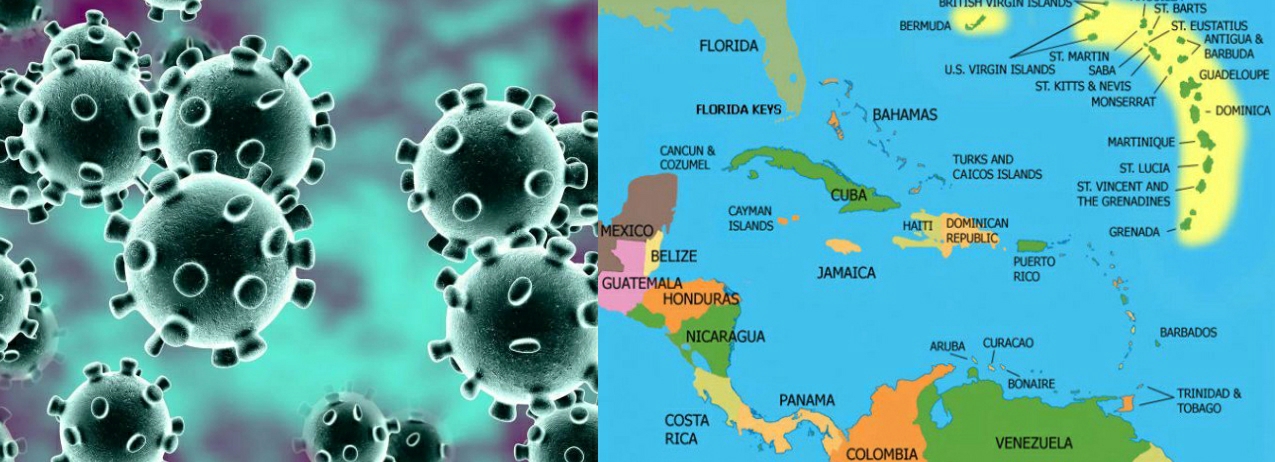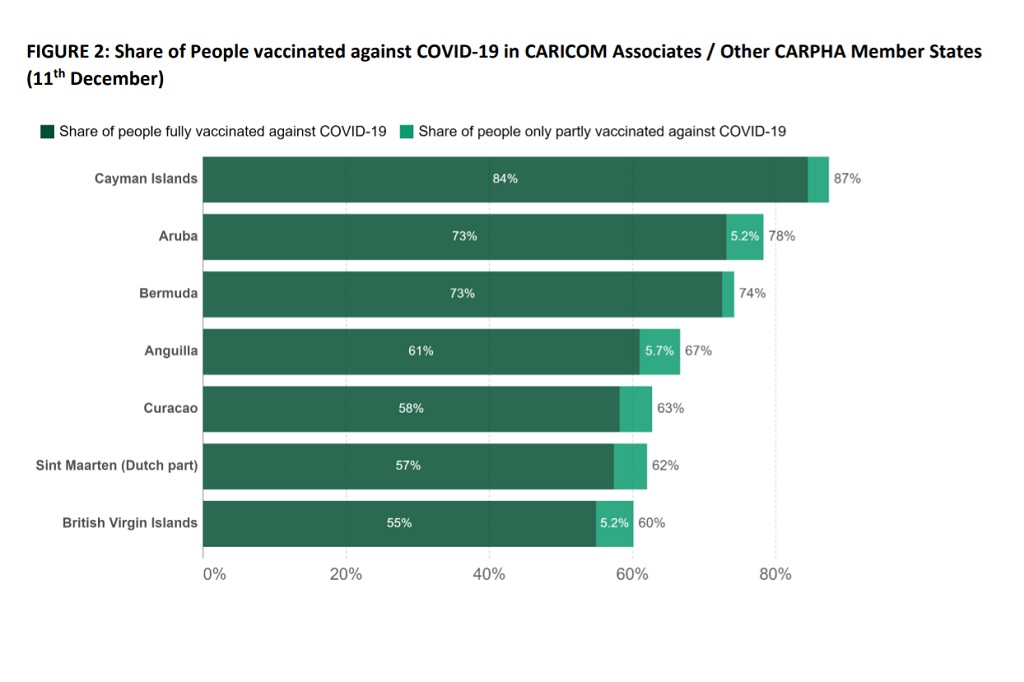
The Caribbean is two years into the coronavirus pandemic and a lot has happened including the introduction of vaccines, new variants and hard-hitting policies to curb the spread of the virus.
Here are some pandemic moments we pretty much will not forget that happened in the Caribbean in 2021:
Confirmed COVID-19 cases crossed 2 million
COVID-19 cases never stopped increasing in the Caribbean. In December 2020, there were 355,415 confirmed cases, 5,789 deaths and 218,228 recoveries.
Now in 2021 up to December 29, the Caribbean has recorded 2,218,288, confirmed cases, 29,137 deaths and 1,806,668 recoveries.
Cuba, The Dominican Republic and Puerto Rico have the highest number of confirmed cases in the Caribbean region.
Vaccines arrive
In March 2021, countries in the Americas began receiving vaccines through COVAX. Jamaica was the first Caribbean nation to receive COVID vaccines through the COVAX facility with PAHO assuring that all Caribbean countries would receive their first shipment by April 2021 under the COVAX facility.
During the year Caribbean islands received donations from India, the USA, the UK and Mexico just to name a few.
Sharing was also done among Caribbean islands in February to help those that were still waiting for their first shipment of vaccines through the COVAX facility.
According to which Caribbean country you are in the following vaccines are in the region: AstraZeneca, Sputnik V, Pfizer BioNTech, Covishield, Janssen (Johnson &Johnson), Moderna and Sinopharm.
Vaccine hesitancy
Fears, rumours and the sharing of misinformation slowed down vaccination numbers in some islands.
The reasons for vaccine hesitancy were many with the top in the Caribbean related to concerns about the possible side effects of the vaccine, the vaccine being developed too quickly and not knowing enough about the vaccine.
PAHO projects that most countries in the region will have reached or surpassed the WHO target of vaccinating 40 per cent of their eligible populations by the end of 2021.
About 57.3 per cent of the population in Latin America and the Caribbean have completed their vaccination schedules.
However, the current estimates are that Haiti, Jamaica, St Vincent and the Grenadines, St Lucia and Grenada may not attain 40 per cent coverage goal.
Vaccination statistics as of December 11.

SVG Prime Minister hit in head during anti vaccine protest
Anti-vax and anti-mandatory vaccination became popular words this year in the Caribbean as protests raged against the COVID-19 vaccine as a requirement for work or to enjoy safe zones.
In August while walking past protesters to the House of Assembly in St Vincent and the Grenadines, Prime Minister Dr Ralph Gonsalves was hit in his head with an object and suffered a concussion during an anti-vaccination protest.
The legislation mandating COVID-19 vaccination for certain categories of workers in SVG eventually went into effect.
Jab Jabs went out to play in Grenada
Carnival was mostly cancelled in many Caribbean islands due to the pandemic but in Grenada despite being told not to play Jab Jab, revellers still walked for the two days of what would have been Carnival Monday and Tuesday
This year Grenada lost many of its elderly due to the COVID-19 pandemic. Among them was Leonora Massima Noel who was 119 years old and believed to be Grenada’s oldest citizen.
The entire island of Carriacou and Petite Martinique were thrown into mourning over her passing.
Noel had contracted the virus on September 13 and passed away on September 24 at the Princess Royal Hospital.
Antigua PM and family threatened over mandatory vaccination
Antigua and Barbuda had its share of anti-vaccination protests and the situation became very heated when threats were made against Prime Minister Gaston Browne and his family.
Threats were issued against him as the government faced criticism over its move to mandate either COVID-19 vaccination or regular testing for some public sector workers.
Browne responded: “Stop the foolish rhetoric….If you come close to me talking about you are threatening me, you will get hurt….Don’t test me!”
Civil unrest erupts in Guadeloupe, Martinique over vaccine mandate
The latter part of the year became chaotic in Guadeloupe and Martinique as these French Caribbean islands experienced fiery protests looting and other acts of violence over the COVID-19 vaccine mandate for healthcare workers.
There was also the issue of a health pass requirement to enjoy restaurants and other venues.
The French government delayed mandatory vaccinations for healthcare workers in the region until December 31, 2021.
Guyanese teen with preexisting condition dies after vaccination
Guyana was thrown into a tailspin when Joshua Henry, 13, died hours after taking the second dose of the Pfizer vaccine.
It was later determined Henry, who suffered a brain haemorrhage had a pre-existing condition that caused his death and not the vaccine.
An autopsy performed by pathologist Dr Nehaul Singh and Government Medical Officer Dr Swarasite Persuad-Etwaria found a pre-existing cerebral aneurysm that led to the brain haemorrhage which claimed Henry’s life.
COVAX orders SVG to pay for vaccines donated to Trinidad
Jaws were left hanging as St Vincent and the Grenadines which shared 5,000 doses of its AstraZeneca vaccines with Trinidad and Tobago was now told it would have to pay US$70,000 for it.
The vaccines which were acquired through the COVAX facility were at risk of expiring due to low vaccine uptake in SVG.
According to Gonsalves, COVAX said his government should have returned the vaccines instead of giving them away.
New omicron variant enters but Delta remains predominant
The year is now ending off with the emergence of a new variant of the coronavirus called omicron.
The omicron variant is already in the Caribbean region and according to PAHO as of December 22 has been detected in Bermuda, Trinidad and Tobago, Cuba, Cayman Islands, French Guiana, Guadeloupe, Puerto Rico and Saint Martin.
St Vincent and the Grenadines recently reported the omicron variant in a traveller from the US while officials in The Bahamas believe omicron is behind its fourth COVID-19 wave.
The Delta variant however continues to dominate all sub-regions of the Americas.